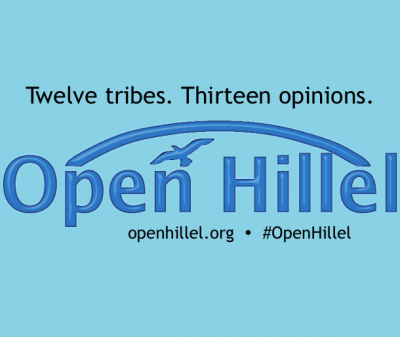The Midwest does not get enough credit for its foundational role in the American Jewish community. However, the first campus Hillel was established in 1923 at the University of Illinois at Urbana-Champaign. In an atmosphere where Jewish campus life was largely non-existent, the first Hillel marked a new age for American Jewish students who endured exclusion, alienation, and Jewish quotas at university.
The situation was so bleak for Jewish students that Hillel founding director Rabbi Benjamin Frankel lamented, “[the Jewish student] is passively Jewish and he is not sure of his Jewish learning. When he enters the university and finds what he interprets as anti-Semitism, he ducks his head in the sand like an ostrich and thinks he has solved the problem.”
Over the next 50 years, Hillel grew up and became famous for re-integrating Jewish World War II veterans, working to free Soviet refusniks, and finally maturing into an organization independent and financially free of its parent, B’nai B’rith. According to Hillel’s own historical timeline, Israel has never been the most central part of the Hillel program—helping and engaging Jews regardless of their ideological viewpoints was the light which illuminated Jewish campus life for almost a century.
Jewish students of today can look to almost 100 years of Hillel’s efforts to enrich Jewish campus life, strengthen Jewish identity, and combat anti-Semitism on campus. The umbrella created by the 550 local campus Hillels should be large enough to shelter all Jewish students. Unfortunately, a great number of Jewish student are left out in the rain.
Hillel’s Guidelines for Campus Israel Activities excludes many students from organized campus programming based on their political views on Israel. Hillel should listen to many of its own members and beneficiaries who see this policy as undermining Hillel’s presence as a place for all Jews “regardless of belief.”
Open Hillel is an organization comprised of Hillel staffers and interns (as well as students who would have been otherwise been Hillel students) that seeks to change these “standards for partnership.” Of particular issue is the policy prohibiting association with groups that “delegitimize, demonize, or apply a double standard to Israel.”
This language is meant to foster pro-Israel voices on campuses where there is sometimes a dearth of Zionist perspectives. Unfortunately, left-wing Jewish groups tend to be excluded from Jewish campus life more than right-wing groups. To date, no center-right or right-wing pro-Israel group has ever been excluded under this clause. Additionally, some campuses have welcomed these Jewish groups while others have rejected them. What can Hillel say to students who have dedicated themselves to Jewish campus life, only to see their investment rejected by their local Hillel?
While the policy seems benign enough in its rejection of “groups” as opposed to individuals, they are in fact inseparable. Hillel prides itself on being the largest group of—and for—Jewish students in America. A unique awareness of the organization of Jewish campus life underscores the success of Hillel. Jewish student groups and Jewish students are inseparable; excluding the major excludes the minor, too.
Considering that Jewish students and adults are still grappling with the role of Israel in American Jewish life, what is the justification for policies that create an anti-pluralistic environment for Jewish students on our colleges and universities?
At the University of Illinois at Urbana-Champaign in 1923, there were no policies that closeted the diverse viewpoints held by Jewish students. To be a Jewish student was enough of a qualification to benefit from Hillel and serve the Jewish campus community. This vision of Jewish campus life—which predates Israeli statehood by over two decades—embodied the pluralistic self-portrait painted by Hillel’s contemporary rhetoric.
Open Hillel believes deeply in the ideal, expressed in Hillel International’s mission statement, of a vibrant, pluralistic Jewish community on campus, in which all people, regardless of their religious observance, past Jewish experience, or personal beliefs, are welcome.
Hillel has become synonymous with Jewish campus life. Open Hillel’s call for pluralism should move Hillel to reconsider and redraft their standards for partnership. In an age where Israel is one of many topics in the Jewish American conversation—and not the topic that defines Jewish identity—pluralism must extend to the subject of Israel on campus.
In its 10 decades of Jewish student engagement, Hillel has never shied away from challenges facing the Jewish campus community. The organization should heed Open Hillel’s call to address these important issues of Jewish campus pluralism. Hillel’s role as the unequivocal foundation of Jewish campus life depends on it.
Open Hillel invites all interested students to join the coalition. All it takes is a visit to www.openhillel.org, where you can learn more and sign the petition. Also, post a testimonial about your personal experiences with Hillel over at http://openhillel.tumblr.com/submit.
Gabriel T. Erbs is a student at Portland State University.
[fbshare type=”button”]


